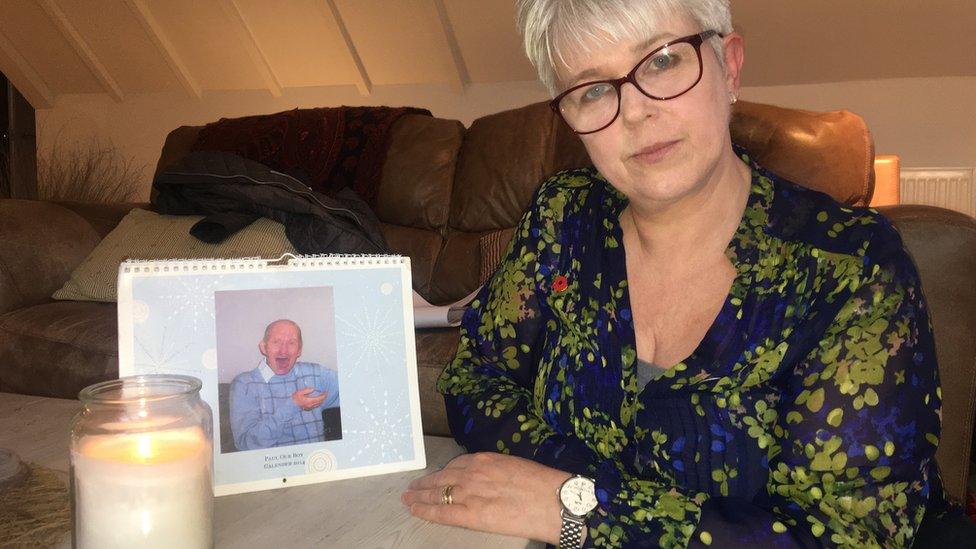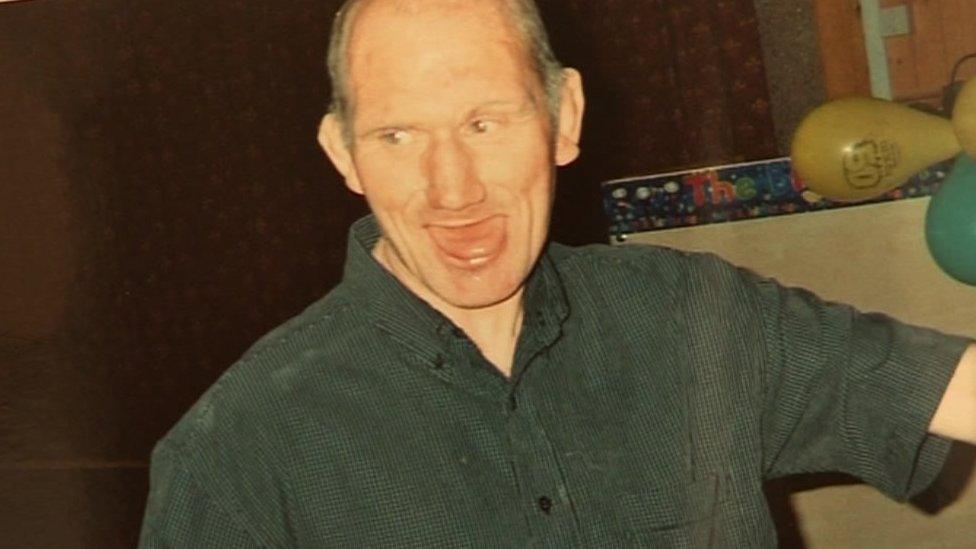Paul Ridd Foundation petition prompts debate over health inequalities
- Published
An inquest ruled hospital neglect contributed to Paul Ridd's death in 2009
Campaigners seeking mandatory training for health and care staff dealing with patients with learning disabilities have secured a Welsh Government pledge.
Paul Ridd's family have wanted action since an inquest ruled hospital neglect contributed to his death in 2009.
Their 5,650-name petition has prompted a Senedd debate, external about their concerns that some patients face inequalities.
The Welsh Government said learning disability awareness would be included in mandatory diversity training.
"We have been fighting for the last 10 years," said Jayne Nicholls, Mr Ridd's sister.
"Fighting to make changes within the NHS to make health care better for people like Paul.
"Having the debate in the Welsh assembly is an important day for us."
Mandatory training for all health and social care workers in England, external was announced on Tuesday, following the death of Oliver McGowan, 18, who had autism.

Jayne Nicholls: "We were really blessed with Paul as a brother. He took life's hurdles with no effort at all"
The petition by the Paul Ridd Foundation said mandatory training in Wales could "address the huge health inequalities facing people with autism and a learning disability".
In 2013, a coroner ruled Mr Ridd, 53, from Baglan, near Port Talbot, died from natural causes contributed to by neglect at Swansea's Morriston Hospital.
At the time, the local health board said its care quality had improved.
Since 2014, the foundation set up in Mr Ridd's name has helped train about 1,000 "champions" in the health service to work as learning disability liaison nurses.
"But we are only scratching the surface and that's why we need this training to be mandated to make sure that we reach everybody in the health service," said Mrs Nicholls.
A Welsh Government spokesperson said it was "committed to putting in place comprehensive training for all NHS staff to ensure people with a learning disability receive high quality care appropriate to their needs".
"Learning disability awareness training will be included as part of health boards' mandatory equality and diversity training," they said.
"This will be supported by extra specialist training for staff who have more frequent contact with individuals with a learning disability."
- Published7 August 2019

- Published9 December 2018

- Published2 May 2013
